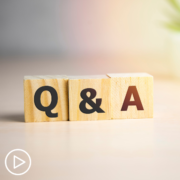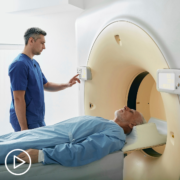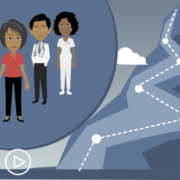Navigating Anxiety and Stress Following Follicular Lymphoma Treatment
Navigating Anxiety and Stress Following Follicular Lymphoma Treatment from Patient Empowerment Network on Vimeo.
What are some ways for follicular lymphoma patients to cope with emotions after treatment? Cancer patient Lisa Hatfied shares coping methods and health lifestyle advice for dealing with stress and anxiety.
See More from START HERE Follicular Lymphoma
Related Resources:

|

|

|
Transcript:
Lisa Hatfield:
After you are done with your follicular lymphoma treatment (including stopping any maintenance therapy), you may feel anxiety or stress and ask yourself “Well now what?” This range of emotions is normal. One woman shared, “After a year in remission, dealing with the aftermath of follicular lymphoma has been tough. Initially, the news of remission brought euphoria and excitement that lasted the whole day. However, soon after, I found myself feeling numb—and then grappling with guilt for feeling that way.
You may feel similar to this woman or you may feel like the other shoe is about to drop (i.e. concerned about recurrence in the future). Here are some tips to help manage this stress and anxiety:
- Manage your expectations. Give yourself a break and set realistic expectations. After you stop maintenance therapy, you may not feel 100% back to normal right away so give yourself grace
- Research has shown that fear of recurrence can be reduced when your healthcare team is able to give people statistics about curability or remission length. Ask your healthcare team if you find comfort in statistics.
- Talk to a counselor and seek antidepressant or anti-anxiety medications
- Exercise and relaxation techniques like meditation and mindfulness may also help
- Continue healthy lifestyle factors, just like you did during treatment, including good diet/nutrition, getting enough sleep, etc.
- Join a support group designed to help people who have completed treatment. It can be helpful to hear what other people do to manage their anxiety/stress and know you are not alone in feeling this way.
Sources:
- https://lymphoma-action.org.uk/about-lymphoma-treatment-lymphoma/remission
- https://www.mylymphomateam.com/resources/anxiety-fear-and-lymphoma










